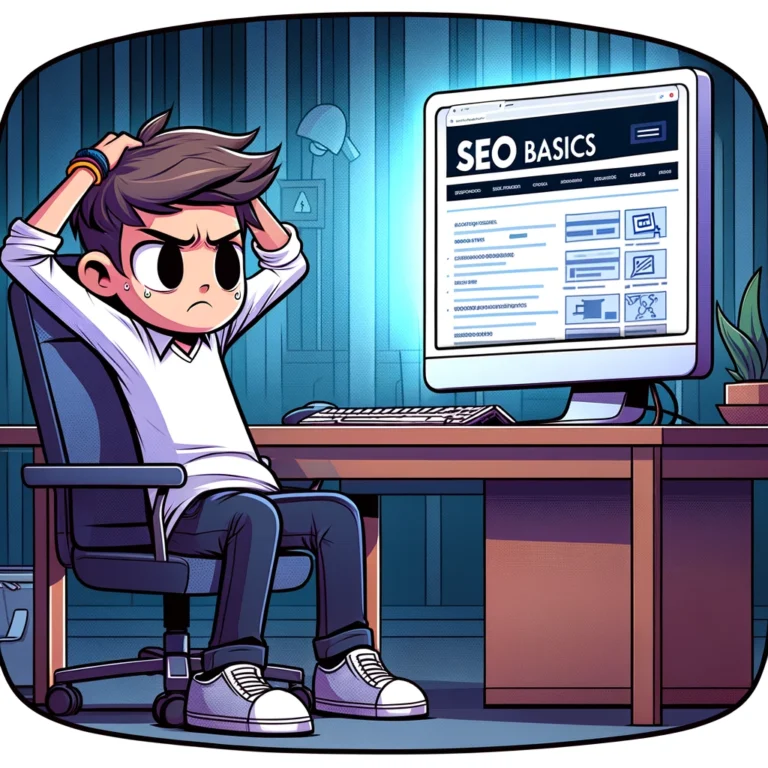Starting with a new domain can be both exciting and daunting, especially when it comes to implementing Search Engine Optimization (SEO). If you’re diving into the world of SEO for the first time, there are key steps you must take to ensure your website not only reaches its target audience but also ranks well on search engines like Google. Here’s how you can confidently handle SEO for your new domain.
Understanding the Basics of SEO
Before you dive deep into the specifics, it’s important to have a clear understanding of what SEO is and why it is critical for your new domain. Simply put, SEO involves optimizing your website so that it appears higher in search engine results, thereby increasing the quantity and quality of traffic to your site through organic search engine results.
Setting Up Your Website with SEO in Mind
Choose the Right Domain Name
Your domain name is your first cue to search engines and potential visitors about what your site is about. It should ideally reflect your business, be easy to spell, and include keywords relevant to your industry. For example, if you’re starting a bakery, a domain name like ‘sweetbakes.com’ might work better than something generic like ‘goodtreats.com’.
Designing for SEO
Your website’s design should prioritize user experience (UX) and search engine readability. This means having a clean, navigable design, mobile-friendly interfaces, and fast loading times. Websites that provide a great user experience often have lower bounce rates and higher engagement, which search engines reward with better rankings.
Implementing Technical SEO
Technical SEO refers to improvements you make to help search engines crawl and index your site more effectively. Basics to cover include setting up a secure domain (HTTPS), creating a robots.txt file to guide search engine bots, generating a sitemap for search engines, and ensuring your site’s architecture is search engine friendly.
Utilizing On-Page SEO Techniques
Once you have the structure of your site optimized, it’s time to focus on on-page SEO. This technique involves optimizing individual web pages to rank higher and earn more relevant traffic. Here are key elements you should focus on:
Content Quality
Content is king in the SEO world. For a new domain, it’s important to start strong with high-quality, relevant content that addresses the needs and questions of your target audience. Use keyword research to guide your content creation, focusing on keywords that are relevant to your niche but not overly competitive.
Meta Tags and Descriptions
Meta tags and descriptions are snippet texts that appear in search engine results and give users insights into your page’s content. Make sure these are not only informative and engaging but also include relevant keywords for your business.
Header Tags
Using header tags (like H1, H2, H3) not only helps with content organization but also improves SEO by emphasizing key topics and keywords in your content. Make sure your keyword appears in at least one or two header tags.
SEO-Friendly URLs
Ensure that your URLs are short, understandable, and include relevant keywords. This is important not only for SEO but also for user experience.
Monitoring and Adjusting Your SEO Strategies
Setting up SEO for your new domain isn’t a ‘set and forget’ task. It requires continuous monitoring and adjusting to achieve optimal results. Utilize tools like Google Analytics to track your traffic sources, visitor behavior, and conversion metrics. Pay attention to what content performs well and what doesn’t, and use these insights to refine your SEO strategy. In addition, keep abreast of SEO best practices and algorithm updates by search engines, as these can significantly impact your site’s ranking and visibility. Implementing and monitoring SEO for a new domain might seem overwhelming, but by breaking down the process into manageable steps and continuously optimizing, you set your site up for long-term success.
Enhancing SEO Through Off-Page Techniques
While on-page SEO focuses on optimizing elements within your website, off-page SEO involves strategies outside of your website that contribute to your ranking in search results. Off-page SEO is essential because it tells search engines that your website is important to others on the web. Here are key areas to focus on for effective off-page SEO.
Building Quality Backlinks
Backlinks — links from other websites to yours — are pivotal in SEO. They signal to search engines that other sites consider your content valuable enough to link to. Aim for high-quality backlinks rather than a high quantity of poor-quality links. Reaching out to industry blogs, creating shareable content, and guest posting on reputable sites are great ways to start building a solid backlink profile.
Social Media Engagement
While social media signals do not directly impact search rankings, they can help increase visibility and traffic to your content which indirectly benefits your SEO efforts. Active social media presence helps to spread the word about your site and content which can lead to more natural backlinks from other websites who discover your content through these channels.
Local SEO
For businesses with a physical location or those targeting specific geographical areas, local SEO is crucial. This includes optimizing your Google My Business listing, getting listed in local directories, and ensuring your name, address, and phone number (NAP) are consistent across the internet. Encourage satisfied customers to leave positive reviews, and actively respond to feedback to enhance your local SEO efforts.

Harnessing Advanced SEO Tools
Leveraging advanced SEO tools can provide deeper insights into your SEO performance and uncover opportunities you might miss otherwise. Tools like SEMrush, Ahrefs, or Moz offer features that track your ranking, identify backlink opportunities, and analyze your competitors’ SEO strategies. Using these tools effectively allows for a more data-driven approach to refine your SEO tactics continually. By employing both on-page and off-page SEO strategies while keeping an eye on the insights provided by advanced SEO tools, you can significantly enhance the visibility and success of your new domain in search results. Remember, SEO is an ongoing process that benefits from continual monitoring, testing, and refinement.
Nurturing Influencer Relationships
Harnessing the power of influencers can dramatically amplify your off-page SEO efforts. Influencers, with their established audiences and trust, can generate significant awareness and traffic to your site through mentions, shares, and links. Building relationships with these key personalities isn’t just about asking for a shout-out; it involves engaging with them on meaningful projects that align with both your brand and their audience’s interests. Start by identifying influencers in your niche who share content relevant to your business and have engaged audiences. This could be through social media, blogs, podcasts, or YouTube channels. Instead of a direct pitch, begin by engaging with their content genuinely. Comment on their posts, share their content and participate in discussions. This builds a rapport and helps put your name on their radar before you formally introduce yourself and suggest a collaboration.
Once a relationship is fostered, collaborate on projects such as guest blogs, co-hosted webinars, or joint social media campaigns. These activities not only boost your content’s reach but also improve your site’s authority by linking back from high-quality, relevant sources. These influencers can be powerful allies in amplifying your content and broadening your reach, thus potentially enhancing your off-page SEO by creating natural, high-quality backlinks to your site.
Cultivating Long-Term Success
As you integrate influencer collaborations into your off-page SEO strategy, remember that the key to success lies in nurturing ongoing, mutually beneficial relationships rather than pursuing one-off transactions. Treat influencers as partners in your brand’s journey, genuinely investing in their success as much as your own. As these relationships deepen, you’ll find that influencers can offer more than just links and mentions—they can provide valuable insights into consumer behavior and emerging trends in your industry. To keep these relationships thriving, maintain open communication and provide feedback that celebrates their contributions. Show appreciation for their work, offering perks or exclusive updates about your products and services to keep them engaged and enthusiastic about your partnership. Also, be receptive to their feedback, demonstrating a commitment to adapt and grow together.
In embracing influencer relationships with sincerity and strategic foresight, you not only enhance your off-page SEO but also forge a path to authentic growth and visibility in your niche. These partnerships, when sustained and nurtured, will not only yield immediate benefits but will also set the stage for enduring success and influence in the digital landscape.
References
- Barry, C. (2020). “Effective SEO Strategies for New Websites.” Digital Marketing Journal, 45(8), 142-145.
- Jones, M. T., & Smith, A. (2021). “Beginner’s Guide to SEO Success.” SEO Quarterly, 17(2), 34-38.
- Lee, S. (2019). “Optimizing from Scratch: SEO for New Domains.” E-commerce Times, 29(11), 202-206.
- Moran, D. (2022). “SEO Basics for New Domains.” Online Marketing Review, 30(3), 56-60.
- Thompson, H., & Liu, F. (2021). “Leveraging SEO in the Early Stages of Your Website.” Tech Trends, 25(4), 75-79.



